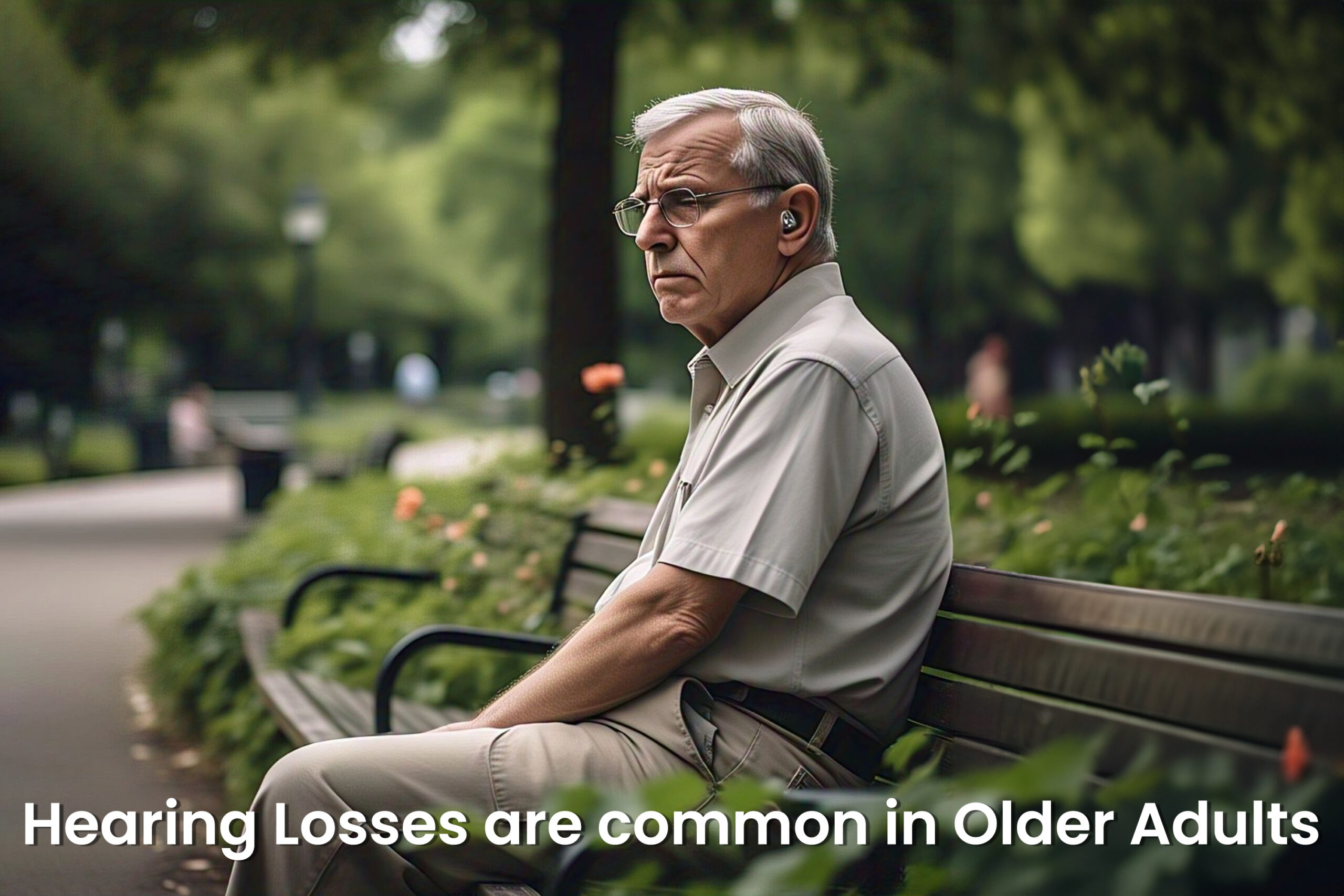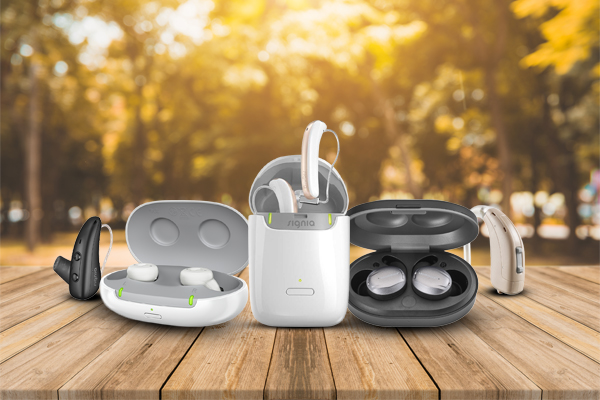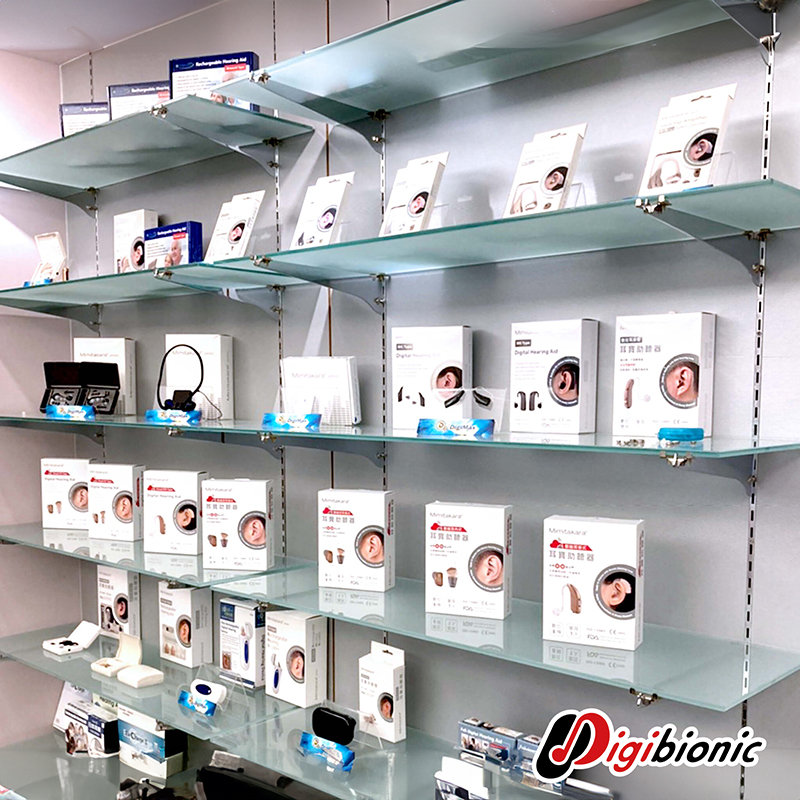- 13 March, 2025
- Written by Digibionic India
Why Are Older People More Susceptible to Hearing Loss?

Hearing health usually affected in older adults is often caused by natural aging, diseases, or environmental factors. As people age, the cochlea naturally thickens and hardens, but this alone does not lead to the loss of cochlear hair cells or auditory nerves. This process typically stabilizes around the age of 70. However, the most common causes of hearing loss stem from environmental noise, mental stress, high blood pressure, high cholesterol, diabetes, cancer, and cardiovascular diseases. These conditions can disrupt lymph circulation in the inner ear, cause neurometabolic disorders, or lead to oxygen deprivation, ultimately resulting in the death of ear hair cells and subsequent hearing impairment.
Signs of Hearing Loss: Recognizing the Symptoms Early
Individuals with hearing impairment may experience the following symptoms:
- Progressive hearing loss, making it difficult to understand conversations.
- Frequent interruptions or requests for repetition during conversations, often accompanied by raised voices.
- Difficulty hearing high-frequency sounds such as bird calls, female voices, or children’s voices.
- Episodes of tinnitus (ringing in the ears) or dizziness.
- Social withdrawal due to communication challenges, leading to strained relationships.
- Memory decline and depression over time due to reduced auditory stimulation.
- Cognitive impairment and increased risk of dementia in severe cases.
How to Prevent Hearing Health: Effective Hearing Care Tips
While some degree of hearing decline is inevitable with age, several proven strategies can help maintain and protect hearing health:
Engage in Regular Exercise and Avoid Smoking
Regular physical activity lowers the risk of cardiovascular diseases, which contribute to hearing loss. Smoking, however, is harmful—nicotine and carbon monoxide reduce oxygen levels in the cochlea, damage tissue, and impair the chemical processes needed to transmit auditory signals to the brain.
Follow a Hearing-Friendly Diet
Consuming shellfish and fish is highly beneficial for hearing health. These foods contain unsaturated fatty acids, which are linked to a reduced risk of hearing loss. A study by Brigham and Women’s Hospital in Boston found that individuals who ate fish at least twice weekly had a 20% lower risk of hearing impairment.
Limit Exposure to Loud Noises
Reduce time spent in high-decibel environments like concerts, construction sites, and heavy traffic. Prolonged headphone use at high volumes can also damage hearing. Follow the 60/60 rule: listen at no more than 60% volume for no more than 60 minutes at a time to prevent noise-induced hearing loss.
Stay Socially and Mentally Active
Engaging in conversations and learning new skills keeps the brain active and enhances auditory reception. Social interaction stimulates cognitive function, reducing the risk of dementia and age-related cognitive decline.

The Importance of Using Hearing Aids: Don’t Delay Treatment
If you already experience hearing loss, early intervention is crucial. Untreated hearing loss can lead to communication difficulties, social isolation, depression, and cognitive decline.
Properly fitted hearing aids can:
- Enhance communication and interpersonal relationships.
- Boost cognitive function by keeping the brain engaged with sound.
- Prevent depression associated with hearing impairment.
However, selecting the right hearing aid is essential. A hearing test should determine the severity of hearing loss, and an audiologist should be consulted to choose the most suitable device. Wearing an ill-fitting hearing aid can do more harm than good.
Conclusion: Protect Your Hearing Health Today
Maintaining good hearing health requires simple yet effective lifestyle adjustments, such as regular exercise, a hearing-friendly diet, and noise protection. If you suspect hearing loss, visit Digibionic Hearing Center promptly for evaluation. Early intervention with the right hearing aid can significantly improve quality of life and prevent complications. Take action today for better hearing tomorrow!



